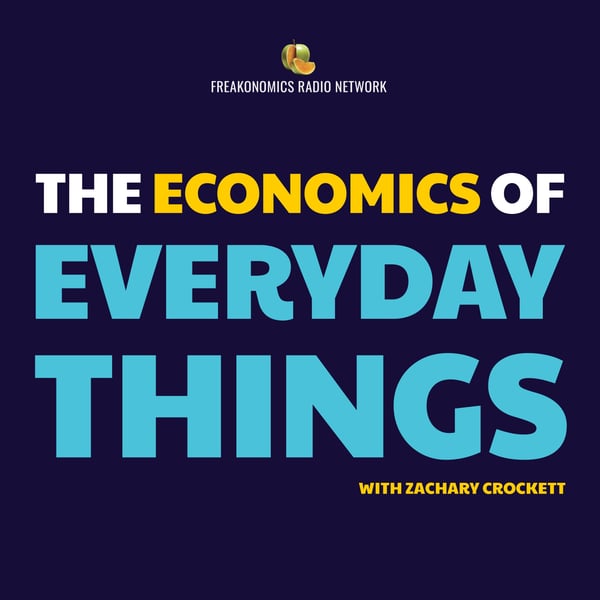Romance Novels (Replay)
The Economics of Everyday Things
Freakonomics Network
4.8 • 1.2K Ratings
🗓️ 29 July 2024
⏱️ 19 minutes
🧾️ Download transcript
Summary
Transcript
Click on a timestamp to play from that location
| 0:00.0 | As an English major at Stanford University in the early 1990s, Danielle Flores |
| 0:08.2 | spent her days reading the classics, the novels that her professors deemed to be culturally significant. But outside of the classroom, |
| 0:17.8 | Flores was introduced to a different kind of literature. Two of my college roommates read romance novels and were avid readers. |
| 0:28.0 | And I made fun of them and they just kind of smirked and said have you actually read an official |
| 0:34.8 | romance novel and I was like no please why would I do that? |
| 0:38.9 | She eventually put her skepticism aside and gave romance a chance. |
| 0:44.0 | I absolutely fell in love with it. |
| 0:45.4 | And for the next four years, I got through my classwork |
| 0:50.0 | by making room for the romance novels. |
| 0:52.4 | And I haven't stopped since. |
| 0:55.1 | Today, Flores is a high school math teacher in the San Francisco Bay Area. |
| 0:59.7 | She reads so many romance books that she has a spreadsheet to keep track of them all. |
| 1:05.0 | On average, I probably read about 250 Robespas a year. Flores is one of the millions of readers who make romance books a 1.4 billion dollar business. |
| 1:17.0 | While the rest of the publishing market reels, physical sales of romance books are up more than 50% over the past year alone. |
| 1:25.0 | You know, everybody wants to find the love of their life and live happy ever after. |
| 1:34.0 | For the Freakonomics Radio Network, |
| 1:38.0 | this is the Economics of Everyday Things. |
| 1:40.0 | I'm Zachary Krakkin. |
| 1:42.0 | Today, romance novels. The romance novel goes back a long way. |
| 1:48.0 | The book that's often called the first modern English novel, Samuel Richardson's Pamela published in 1740 is about |
| 1:56.3 | the protracted courtship between a maidservant and her wealthy employer but romance as |
| 2:02.0 | a mass market commercial industry didn't really take off in North America |
... |
Please login to see the full transcript.
Disclaimer: The podcast and artwork embedded on this page are from Freakonomics Network, and are the property of its owner and not affiliated with or endorsed by Tapesearch.
Generated transcripts are the property of Freakonomics Network and are distributed freely under the Fair Use doctrine. Transcripts generated by Tapesearch are not guaranteed to be accurate.
Copyright © Tapesearch 2025.

